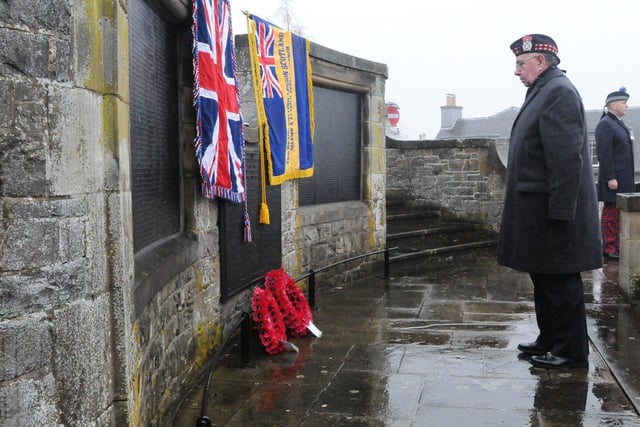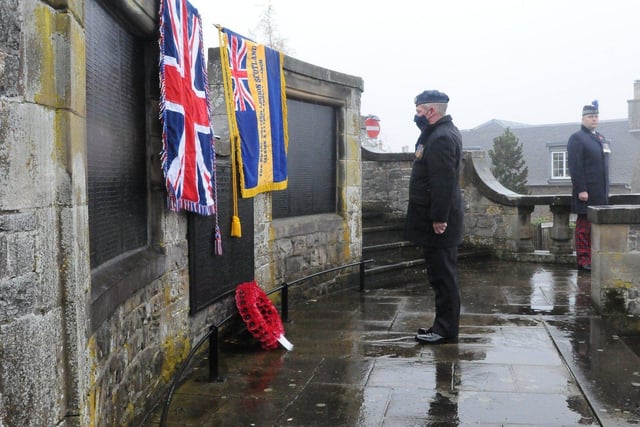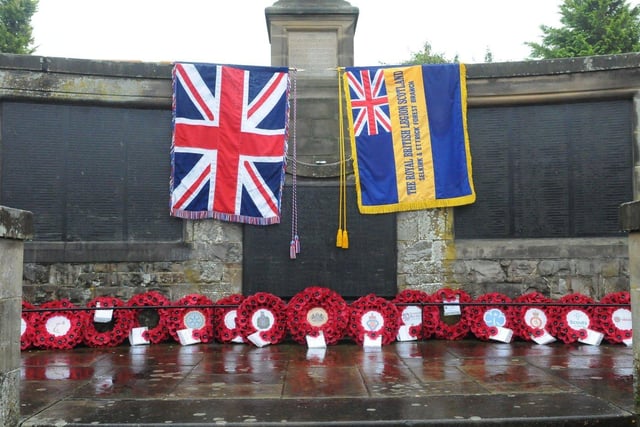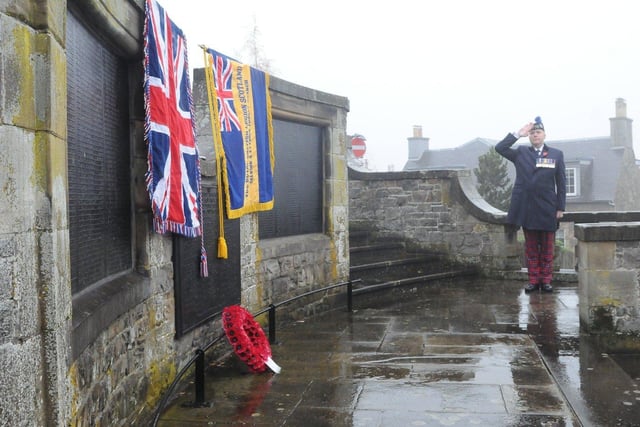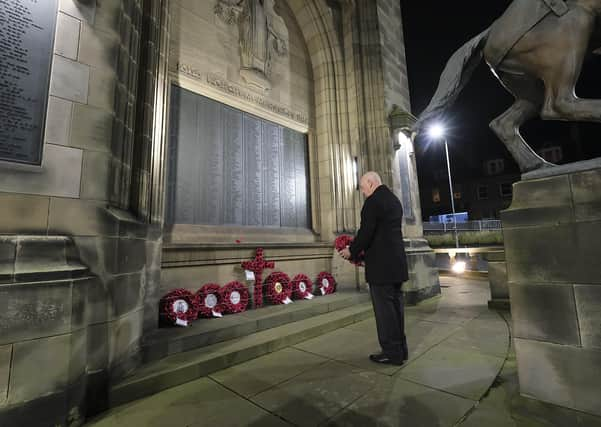The need to mark the sacrifice made by so many in the two world wars, as well as more recent conflicts, has never waned.
And although the ongoing coronavirus pandemic meant that these events this year were restricted to small, strictly limited gatherings, many took the opportunity to remember the fallen in their own way, by observing a two-minute silence on their own doorsteps at 11am on Sunday.
However, across the Borders, wreaths were laid and the last post was played at war memorials, and the lack of parades, services or watching crowds served to add to the poignancy of the day.
In Selkirk, a socially-distanced ceremony took place at the town’s war memorial, with restricted numbers of wreath-layers.
Organiser David Deacon said: “We knew it would be different, and it wasn’t quite what we had planned.
“But I’d like to thank the team at Scottish Borders Council and Police Scotland for guiding us through all the hoops we had to jump through as regards risk assessments.
“And, of course, thanks to all those who carried out their duties respectfully and Covid-safe while laying their wreaths, and everyone involved set an example, just like we have done all this year in Selkirk.
“The whole community was fantastic, impeccable in their behaviour.”
And Selkirk Community Council chairman Alistair Pattullo, who laid one of the wreaths, said: “That was one of the most moving Remembrance Sunday events I have ever attended.
“It was done with a great deal of dignity, it was quite an emotional event.”
Similar events were held in other Borders towns and villages, such as Hawick, Jedburgh, Kelso and Peebles.
In other towns, displays of poppies adorned war memorials and places of worship.
In Galashiels, the official wreath-laying service was held on Armistice Day, yesterday, at 11am, again without the usual parade.
In Melrose, pupils at St Mary’s School answered the call from Poppy Scotland by setting to work, making large tissue paper poppies for display in the town’s homes, shops and hotels, in a project ably led by the children in form eight.
A spokesperson for the school said: “Thinking about the wonderful rainbows that appeared during Lockdown in windows across the Borders the pupils decided that a poppy would be a lovely thing for people to display in windows.
“Support has been incredible as the shops and businesses in Melrose, as well as the wider community, were quick to buy the children’s poppies and display them in their windows.
“It was a super combination of art and enterprise, with every penny made going to further the wonderful work that Poppy Scotland do across the land.”
However, across the Borders, wreaths were laid and the last post was played at war memorials, and the lack of parades, services or watching crowds served to add to the poignancy of the day.
